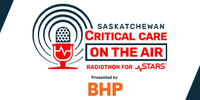Canada is in for some changes to our Transportation industry.
Federal Transport Minister Mark Garneau has released his Transportation 2030 plan which involves potential changes for rail, water and our airways.
Garneau plans to introduce legislation next spring that will create a more transparent, balanced, and efficient rail system that reliably moves our goods to market.
APAS President Norm Hall says it’s an overall plan and initially is pleased with what he hears.
"They're saying they're going to write legislation on reciprocal penalties, refine the definition of adequate and suitable service, and they're going to deal with inter switching and the MRE. That gives us the early part of the winter, so probably three months to get down into the weeds and lobby for the exact points we want," he said.
Halls says they’ll continue to talk with the government about the changes and how they could work.
The reaction seems to be fairly positive from farm groups when it comes to the basics as it relates to rail movement in the Liberal Governments Transportation 2030 announcement.
The Canola Council of Canada applauds the plan that includes a promise to introduce legislative changes for rail service to allow the industry to better meet customer needs.
Patti Miller, President of the CCC, says the ability of the canola sector to meet the needs of its customers depends on predictable and reliable rail service.
Sask Barley Board Chair Jason Skotheim says they are satisfied that the government heard the industry concerns about creating a quick and meaningful dispute resolution mechanism for members of the value chain.
Sask Wheat Chair Bill Gehl says this was a positive and encouraging first step to reforming the CTA, noting that the MRE must be retained and any adjustments must come only after a full costing review is complete.















